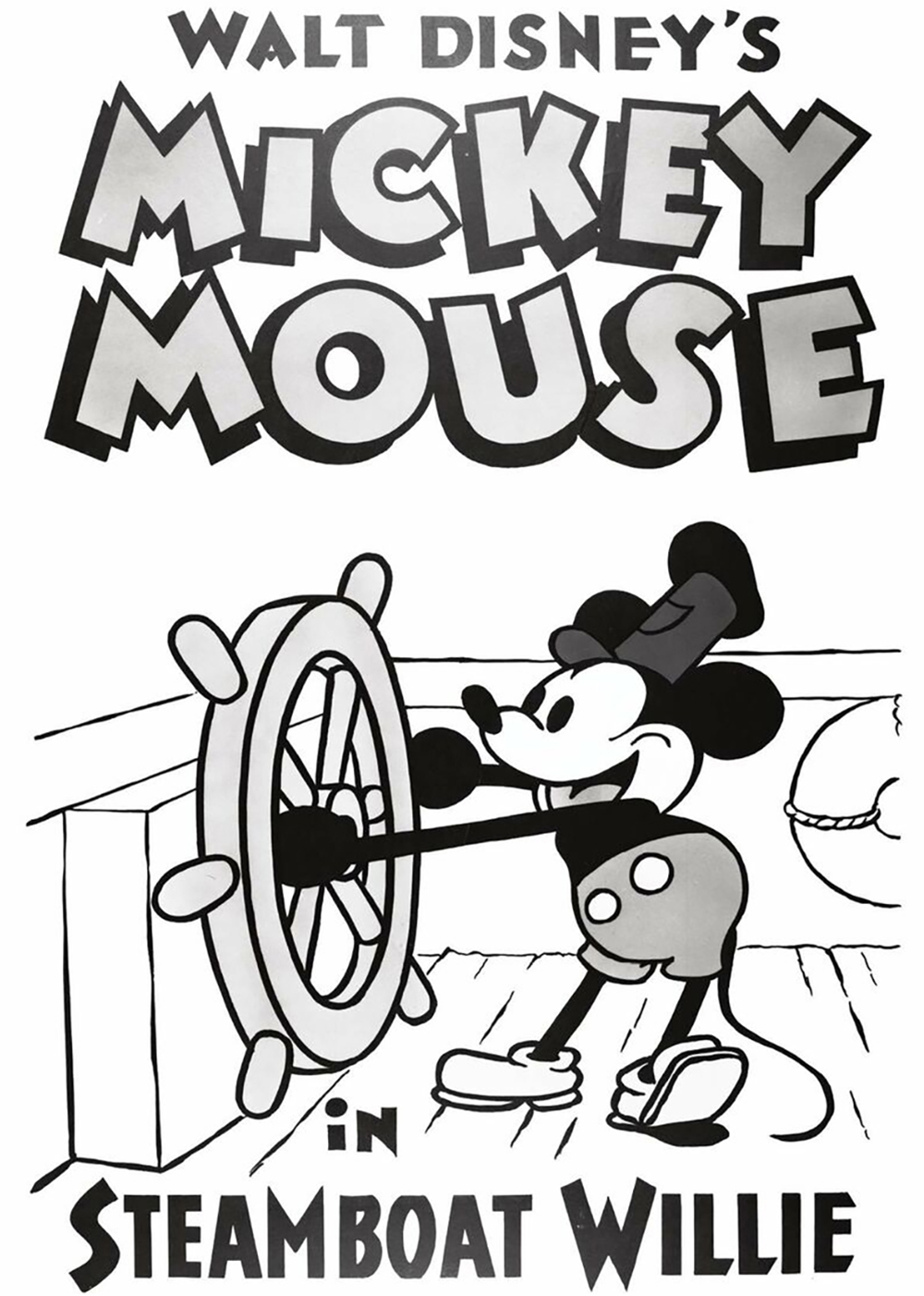Disney - Mickey Mouse returns to the Public Domain: A New Chapter Begins for the Disney Icon
By Mulder, 01 january 2024

The Walt Disney Company finds itself since today in an unprecedented position as its iconic Mickey Mouse character enters the public domain. This transition marks the end of a long legal battle over the copyright of Steamboat Willie, the 1928 short film that gave birth to the Disney empire. With parodies and variations on Mickey Mouse on the horizon, it's worth exploring the implications of this move into the public domain, and how Disney intends to protect its legacy while welcoming this new era.
Steamboat Willie, made in 1928, is now available to all, marking the end of its copyrighted status. This was the result of a legal battle that ended in 2024, bringing Disney face to face with an unexpected reality. While other cultural works such as Virginia Woolf's Orlando and Charlie Chaplin's Le Cirque also enter the public domain this year, Steamboat Willie is becoming the focus of particular attention.
The Mickey of 2024 differs considerably from his 1928 counterpart in Steamboat Willie. Over the decades, Mickey has evolved from a black-and-white version to a colorful, modernized incarnation, becoming the Walt Disney Company's global ambassador. This transformation includes aspects such as a more pleasing appearance, a cheerful voice, white gloves and a less rugged personality. The modern versions of Mickey, however, will remain protected by copyright.
The Walt Disney Company remains committed to protecting its rights to modern versions of Mickey Mouse and other copyrighted works. A Disney spokesperson recently emphasized that despite the expiration of Steamboat Willie's copyright, Mickey will continue to play a prominent role in the company's storytelling, theme parks and merchandising.
Although Steamboat Willie is in the public domain, the names Mickey Mouse and Minnie Mouse have long been trademarks of Disney. As such, any attempt to use these names without authorization from Disney is doomed to failure. In addition, the House of Mouse has deployed strategies such as modifying its logo to include elements of Steamboat Willie, creating additional trademarks to strengthen its position.
Some entertainment industry experts believe that Mickey memes and parodies, already widespread online, will have a limited impact on Disney's image and bottom line. The tendency to create new characters for younger audiences over the years has also helped reduce the potential financial impact of this transition into the public domain.
As Mickey Mouse enters the public domain in 2024, The Walt Disney Company is preparing to navigate this new era while protecting its legacy. Modern versions of Mickey will remain under copyright protection, but the company will also face challenges related to the perception and commercialization of the iconic Mickey Mouse image. In this era of change, Disney will continue to be the vigilant guardian of its precious heritage.

